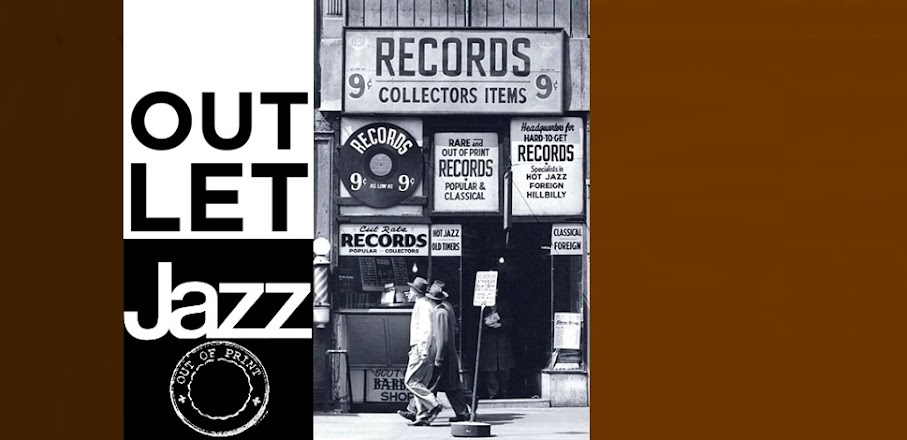Max Roach
MAX
1958's MAX shows Max Roach at the top of his game. A decade earlier, Roach had absorbed Kenny Clarke's drumming style and, with trumpet virtuoso Clifford Brown, forged his own brand of bebop. By 1958, on his way to becoming a true jazz elder, Roach began pushing the boundaries of jazz even further. The quintet heard here served as Roach's musical springboard after Brown's untimely death in 1956. >MAX< is a "comeback" album of sorts. Kenny Dorham steps in to fill Brown's shoes and does so with great panache. Hank Mobley's fine tenor playing is also spotlighted. Highlights include the fast and furious Dorham original "Speculate" and the lush ballad "That Ole Devil Love". On the former, Roach takes an absolutely blazing drum solo-which ends curiously with the sound of a tape splice. The performances on this track alone prove that Roach's band was the equal of any hard-bop group in the world. *allmusic.com*
Killer set of bop tracks recorded by Max and other NY bop heavy hitters — like Hank Mobley and Kenny Dorham — plus a guest appearance by Ramsey Lewis on piano, in one of his few non-Chicago, non-trio sides! The record's got that great kind of energy that Roach could hit when he really was kicking his group into gear — and although the overall approach is mostly hardbop, there's plenty going on under the surface. Tracks inlcude "CM", "Four X", "Crackle Hut", and "Speculate". *Dusty Groove, Inc.*
There are many drummers in jazz. But Roach is one of the few meriting the title "percussionist". Few drummers utilize their instrument in the multi-faceted manner that Roach does. He communicates vividly, because he has liberated his instrument to incorporate in its realm patterns of expression rarely associated with it before Roach.
As an accompanist, Roach knows his function and performs it with taste and skill.
Roach, to understate it, is "a good drummer".
In every sense, Roach is a musician. He listens carefully and astutely to what occurs around him. He reflects the feelings and expressions of his compatriots. He seizes ideas, expands them, and returns them in the form of provocative messages. He utilizes the drums as more than sound-creating devices. He fulfills the musical needs of other musicians during a performance. This fulfilment often leads to specific and longrun progress on their parts.
Roach is more than a time-keeper, often the sole function of many jazz drummers. Rather than impersonate a metronome, Roach plays several key roles. Zealously guarding the beat, Roach is inventive enough to accomplish much more than this single function. He utilizes rhythmic patterns creatively; it is difficult to predict his musical behavior, yet it is a constant listening challenge. He plays melodically, speaking freely to the other instruments.
Roach has come a long way since he emerged from high school in '42. From the Minton's era to the School of Jazz at Lenox, Roach has grown with jazz, in the best sense of the term "evolution". Although many jazz listeners might question Roach's capacity for further growth, after such ambitious development, it is quite likely that he will go on to master more of the complexities of modern music, without sacrificing his improvisatory brilliance.
In so doing, he may well dwarf his past achievements.
In Roach's case, this is possible. *Don Gold (liner notes)*
1 - Crackle Hut
(Owen Marshall)
2 - Speculate
(Kenny Dorham)
3 - That Ole Devil Love
(Allan Roberts, Doris Fisher)
4 - Audio Blues
(Max Roach)
5 - "C.M."
(Hank Mobley)
6 - Four-X
(Max Roach)
Kenny Dorham (trumpet), Hank Mobley (tenor sax),
Ramsey Lewis (piano), George Morrow (bass), Max Roach (drums).
Recorded in Chicago, Illinois, January 4, 1958


https://1fichier.com/?e7h19c7y5vcfdz9uuh4n
ReplyDeleteGracias Blbs. Otra gran aportación de bebop. Deliciosa "El viejo amor del diablo".
ReplyDeleteSin desperdicio las notas de Don Gold. Deseando escucharlo. Gracias
ReplyDeleteThanks very much!
ReplyDeleteThank you very much, blbs!
ReplyDeleteExcelente posteo. Muchas gracias por compartirlo!
ReplyDelete